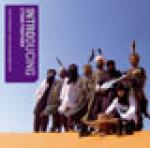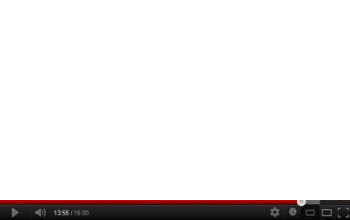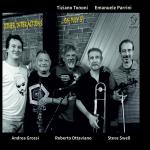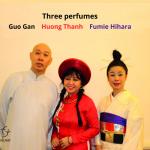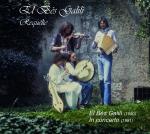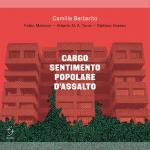
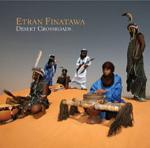
Among the grasslands of the Sahel and the shifting dunes of the Sahara desert, two legendary nomadic peoples, the Wodaabe and Tuareg, are joined together in the raunchy guitars and haunting voices of Etran Finatawa. As the winds of change cast uncertainty over their nomadic lifestyle, both cultures are at a crossroads. Etran Finatawa reflect on their roots, with a nostalgia and warmth that mirrors the majesty of their desert home.
They are six musicians – Tuareg and Wodaabe people but now based in Niamey, Niger. Many of the songs on this album reflect their longing to return to their roots – the nomadic lifestyle which relies on cattle, the great expanse of the Sahelian grasslands and never-ending dunes of the Sahara. Since the release of their first BBC Award-nominated album (Introducing: Etran Finatawa, 2006) the band toured constantly all over the world. It wasn't until July 2007 that they found time to record Desert Crossroads, produced by Paul Borg (Mory Kanté, Abdel Gadir Salim).
Desert Crossroads is an album of North African blues, underpinned by acoustic percussion, traditional Wodaabe vocals, fused with electric guitar and Tuareg rhythms. The combination of Wodaabe vocals and Tuareg rhythms and arrangements is quite unique. The songs are nostalgic reflections on their people and the desert. ‘Kel Tamasheck' (The Tuareg People) reminds how important the Tuareg culture is and not to abandon the desert, ‘ the wind that takes everything on its way and people just fled by foot leaving behind them nothing but sadness and desolation'. ‘Iguefan' (The Dune) talks of the worries of the Tuaregs ‘ this unique people existing but they are all dispersed…and they are not able to get together and reunite to show that they are one people.'
‘Gaynaako' (The Herdsman) is a Wodaabe song in praise of the nomad who tends his animals so precious to life in the desert and ‘Naanaaye', another Wodaabe song, is about healing, creating the different calling sounds of animals, the flute, the hand clapping, which instantly takes you to the dunes and grasslands of Etran Finatawa's homelands.
This album is about rapid change threatening age-old traditions – a warning that their rich culture and identity must be cherished and allowed to flourish. ‘We don't understand it when you say “rich” and “poor”. For us the riches are the animals in our herds, our riches are our traditions that give us the values that we have lived by for generations.' (Alhousseini Mohamed Anivolla, Etran Finatawa)

Saghmar N Nanna
Kel Tamasheck
Iguefan
Tea Ceremony I
Jama’aare
Tekana
Ganyo Maad
Soto
Asistan
Bagui’s Soundscape
Gaynaako
Alghalem Taxat
Tea Ceremony II
Amidinine
Naanaaye
Tea Ceremony III



















